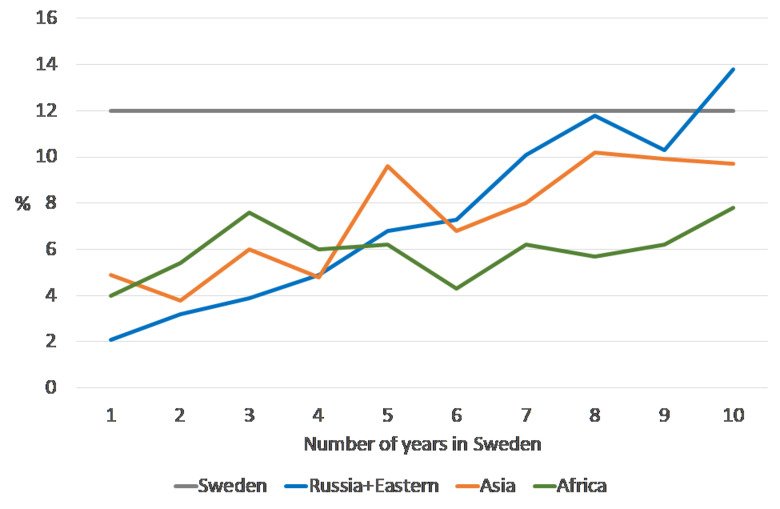Bridging Barriers to mental health support for newly arrived minors (TINA)
This research project is conducted at the EPiCSS group and aimed at examining mental health care utilisation among newly arrived migrants, investigating the causes of differences in mental health care utilisation, and transforming this knowledge into practical improvements in early intervention mental health services.
The overarching aim of a more inclusive access to health care will bring benefits not only to migrants, but also to other marginalised groups. The main aims of the project are:
- To develop and evaluate new methods to understand symptoms in their cultural context
- To enhance treatment at the First-line mental health care
- To find methods to overcome the barriers and increase equity in care
This project is funded by the Swedish Research Council.
About the project
Early interventions within mental health care can speed up recovery and prevent problems from becoming worse. With this in mind, first-line mental health care services for children and adolescents have been commissioned to provide early interventions for this group.

We know that migrant minors - despite high prevalence of mental ill-health - have lower mental health care utilisation overall compared to Swedish-born children, and evidence suggests that this is particularly true for first-line mental health care.
The aim of this project is to facilitate care-seeking of first-line mental health services for newly arrived children and youth. In addition, we intend to develop and evaluate new methodologies which aim to enhance the support available by culturally adapting “treatment as usual” and improving the tools available to practitioners who work with children and young people from diverse backgrounds. Through these methodologies, we aim to promote first-line mental health care on equal terms.
The TINA-project will take place in Haninge municipality; chosen as 30% of children living in this municipality have two parents born outside of Sweden. Furthermore, the municipality has prior experience in large-scale projects directed towards this group.
The project consists of two main parts:
- A community-based intervention
- An individual intervention
Projects
 Photo: Pixabay
Photo: PixabayA community intervention
The first part of the TINA project
 Photo: Getty Images
Photo: Getty ImagesAn individual intervention
The second part of the TINA project
Project contact person
Christina Dalman
Professor, SeniorInvolved in the project
Co-applicants, expertise
- Sofie Bäärnhielm, director of The Knowledge Centre For Transcultural Psychiatry, Region Stockholm. Role: project leader of the qualitative studies.
- Cécile Rousseau, professor in child- and adolescent psychiatry at McGill University, Canada. Role: Over all expert and experienced in using the cultural formulation interview in clinical practice.
- Aina Vaage, the Centre for Transcultural Psychiatry, Stavanger University Hospital. Role: planning and evaluations of the focus groups interviews, adaption of treatment as usual, training of the staff at site, and over all expertise in building up health care structures targeting migrants.
- Rosaria Galanti, (EPHIR) Department of Global Public Health, KI. Role: project leader of the evaluation part of the project.
- Henna Hasson, (Procome) LIME, KI. Role: project leader of the implementation.
The core working group
- Christina Dalman, PI, consultant, professor in psychiatric epidemiology, EPiCSS Research Group
- Anna-Clara Hollander, head of Community intervention, PhD, psychologist, researcher, EPiCSS Research Group
- Karima Assel, child and adolescent psychiatrists, doctoral student in the project, EPiCSS Research Group
- Johan Åhlén, head of Individual intervention, PhD, psychologist, The Unit for Mental Health, Region Stockholm
- Ester Gubi, MD, PhD, EPiCSS Research Group
- Hanna Johans, project coordinator, EPiCSS Research Group
- Ana Hagström, Phd student, LIME Research Group
